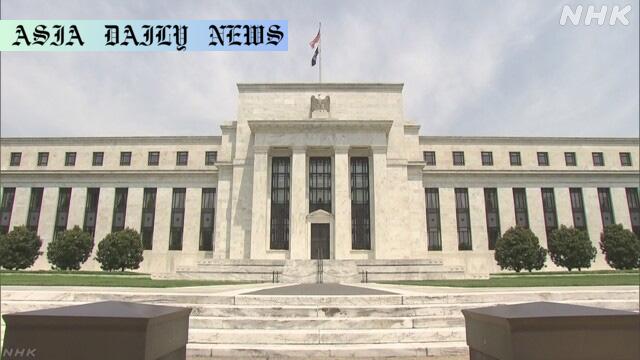Federal Reserve shakeup as Trump prepares to appoint new chair amid policy criticism.
US Treasury Secretary hints at Federal Reserve chair replacement by Trump in October or November.
Powell’s term ends in May 2024; Trump’s decision might target the expiring board seat.
Trump aims to address perceived Federal Reserve failures, including inflation missteps.
Criticism arises on monetary policy delays regarding inflation control and rate cuts.

Introduction: A Potential Leadership Shift at the Federal Reserve
The Federal Reserve, a cornerstone of the United States economy, is once again in the spotlight amidst anticipation of leadership changes. President Donald Trump is poised to nominate a new Federal Reserve chair as Jerome Powell’s tenure nears its conclusion in May 2024. This critical decision could significantly influence the nation’s monetary policy at a pivotal moment, with economic challenges including inflation and interest rates at the forefront.
The ongoing discourse over the Federal Reserve’s actions during periods of financial strain underscores the importance of the appointment. With Trump hinting at an announcement by October or November, all eyes are on the leadership transition, which promises impactful policy decisions for the economy’s trajectory.
Timing and the Importance of Congressional Approval
US Treasury Secretary Scott Bessent has offered critical insights into the timing of the decision. He acknowledged that if the appointee were to succeed a soon-expiring board seat, the nomination and confirmation process would need to kick off immediately. Congressional approval, a complex process, requires strategic timing to ensure a smooth transition without policy gaps.
The Treasury Secretary’s comments point to a calculated approach by the administration. By the start of 2024, with one board member’s tenure coming to an end, the potential nominee’s seat could be aligned to address immediate economic concerns, deferring potentially contentious delays in February or March.
Policy Criticism and Inflation Concerns
Scott Bessent and President Donald Trump share a critical tone toward the Federal Reserve’s prior handling of monetary policy. Specifically, they reference the central bank’s delayed response to rising inflation in 2022 as a critical misstep. According to Bessent, earlier intervention could have mitigated the economic damage that followed.
The Federal Reserve’s potential hesitation in implementing interest rate cuts is another area of concern. Delay in adopting aggressive or necessary measures could further strain an economy already grappling with inflationary pressure. Bessent’s remark that mistakes compound economic woes adds gravity to his argument, highlighting the critical eye under which the new appointee will function.
The Search for Resilient Leadership
Leadership selection at the Federal Reserve involves evaluating candidates who can envision long-term strategies while responding promptly to macroeconomic challenges. Trump’s hints of possible “cross-pollination” in financial ideologies suggest that as the new nominee emerges, adaptability and resilience will remain key attributes.
Under President Trump’s administration, an emphasis on accountability at the Federal Reserve brings to light an ideal candidate’s attributes. With the appointment of someone like Scott Bessent or others from a distinguished pool, their ability to act decisively on monetary policies will be a benchmarked factor. Leadership change at the Federal Reserve must restore confidence among American citizens and global markets alike.
The Road Ahead
As the Federal Reserve awaits its next chapter, uncertainty lingers. Policies enacted today will reverberate over the following years, shaping economic growth, labor markets, and inflation control. The selection of a strong leader could solidify monetary stability and bolster confidence in fiscal governance.
Moving forward, public interest and scrutiny over the Federal Reserve will only intensify. As such, fostering an open, results-focused dialogue between policymakers will ensure a more resilient future for the nation’s economy. Ensuring that productive discourse includes criticism, alternative policy solutions, and collaboration will better prepare the Federal Reserve for tomorrow’s challenges.



Commentary
The Ripple Effect of Leadership Transitions
The Federal Reserve holds a critical role in the U.S. economy, so the leadership transition is not merely about filling a chair. It’s about entrusting someone with the nation’s economic future. President Trump’s upcoming decision is not only pivotal but also places immense responsibility upon the shoulders of whoever steps into this role.
The criticism raised against Jerome Powell’s leadership, particularly regarding inflation management, will undoubtedly place higher expectations on his successor. With inflation still being at the heart of economic discourse and interest rate decisions carrying profound implications, competent and swift decision-making at the Federal Reserve will be critical. This is where the U.S. Treasury Secretary’s remarks significantly amplify the conversation.
The Demands of a Changing Economic Environment
As U.S. economic pressures evolve, so does the need for a Federal Reserve leader who can adapt to issues dynamically. While short-term monetary corrections are important, balancing these with long-term stability will define the forthcoming challenges of the Federal Reserve chair. Continuous learning from past policy mistakes, such as delayed interest rate hikes, deserves deeper reflection from policymakers.
The decision to appoint new Federal Reserve leadership showcases the deliberate interplay between administration priorities and tangible economic progress. It’s a compelling saga that highlights the immense responsibilities tied to monetary policy formulation and implementation. While the selection process may seem bureaucratic to some, its ramifications cannot be overstated.
Looking Toward the Next Chapter
The future of the Federal Reserve remains unquestionably intertwined with its leadership. As President Trump mulls over his decision, the public, economists, and businesses wait with anticipation. A meticulously chosen candidate could bolster national and global trust in the Federal Reserve while poor selections could compound existing economic challenges.
Ultimately, leadership transitions at this scale reflect not just the evolving face of governance but also a shared commitment to strengthening economic prospects for generations to come. Amid all else, one truth remains unequivocal – the Federal Reserve chair’s role is no longer behind closed doors but under the persistent scrutiny of an ever-curious public eye. This moment ushers in not just a change in names but a reinvigoration of purpose within the Federal Reserve’s mission.